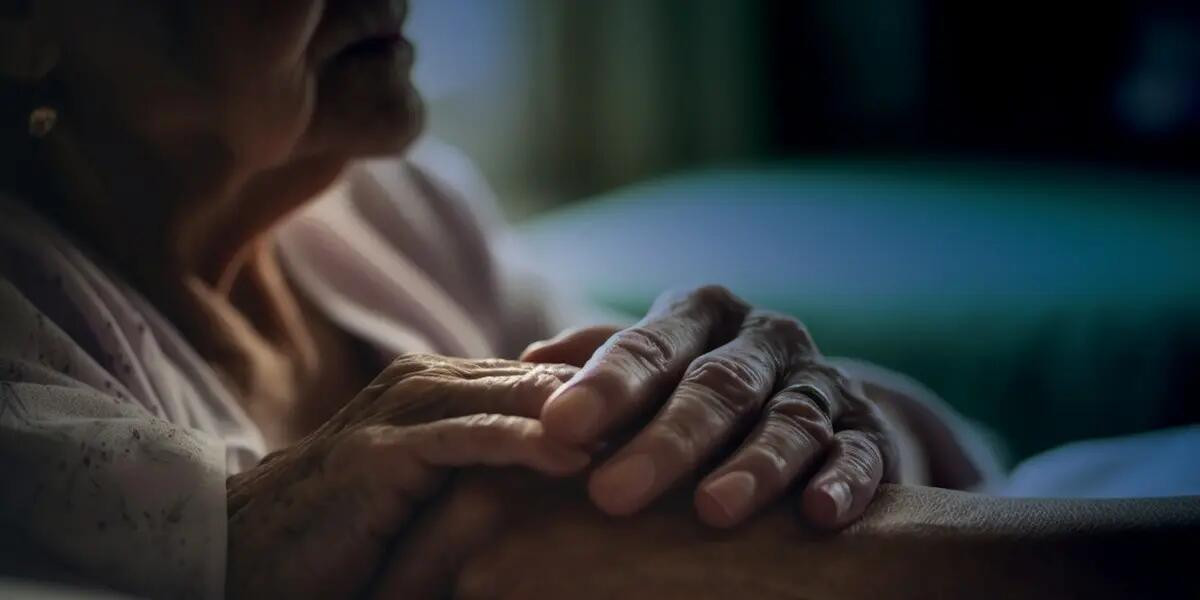Empowering Dementia Caregivers: Understanding Late-Stage Dementia

Sadly, dementia is a progressive illness. Family members and caregivers face the heartbreaking task of adapting to evolving dementia symptoms and accepting a gradual loss of function in those they love. They may notice troubling personality changes or disturbing behaviors. As changes unfold, “caregivers find that they have more questions than answers and may not know what their next steps should be in continuing to respond effectively to changes in physical ability, communication, behavior and cognition,” observes Alzheimers NJ.
How can dementia care professionals help caregivers cope with distressing changes? Understanding dementia and knowing what to expect are first steps. A nursing home team can offer education, support, and comfort to families, drawing on the expertise of clinical psychologists and licensed clinical social workers who specialize in dementia care.
Dementia: living the best life possible
There are many ways to encourage and support a person with dementia to live the best life they possibly can, a life filled with dignity. “Family caregivers can play an important role in informing a care plan that recognizes an individual resident’s goals, preferences, and value,” explains the blog, Dementia Care: Families Can Improve Quality of Life, and they can provide critical supports to nursing home residents.
Becoming empowered as a caregiver in a supportive nursing home environment can help family members avert surprises, cope with stress and loss, and assume meaningful roles in person-centered dementia care.
What to expect in late-stage dementia
Alzheimer’s and other dementias progress over time, and symptoms vary depending on the underlying brain disease. Alzheimer’s disease is described by early-stage, middle-stage, and late-stage symptoms. In the early stage, a person may be experiencing symptoms such as minor memory lapses or losing important objects. “Symptoms may not be widely apparent at this stage, but family and close friends may take notice and a doctor would be able to identify symptoms using certain diagnostic tools,” explains the Alzheimer’s Association.
In middle-stage Alzheimer’s, a person may become confused about time and place, may confuse words, and may have sleep disruptions and mood changes. There could be an “increased tendency to wander and become lost,” says the Alzheimer’s Association. During this period, caregivers can empower the patient to participate in daily activities by identifying abilities and simplifying tasks, they note.
Late-stage Alzheimer’s is marked by difficulty in walking, sitting, and even swallowing. A person may lose awareness of their environment and have difficulty communicating, and they may face a heightened risk of pneumonia. Personality changes and BPSD are common concerns. Patients need extensive assistance with Activities of Daily Living (ADLs) and 24/7 care.
Living through the senses
At this stage, “the world is primarily experienced through the senses,” explains the Alzheimer’s Association. Caregivers can learn to re-calibrate their communication with a loved one, relying less on verbal exchange and more on non-verbal communications and sensory experiences—a warm tone, holding a hand, or brushing a patient’s hair.
Other ways to engage the senses of touch, sound, sight, taste, and smell, says the Alzheimer’s Association, include playing favorite music, looking at old photos together, sharing a favorite food, rubbing lotion with a favorite scent into the skin, or sitting outside together on a nice day.
The value of feelings
“Feelings count, and caregivers have a huge influence on the lasting emotional experience of nursing home residents,” explains the blog on dementia communications. This makes relaxed, open body language and positive emotions especially valuable in late-stage dementia.
The Family Caregiver Alliance urges caregivers to “listen with your ears, eyes, and heart” and offer affection and reassurance. They point to the value of maintaining a sense of humor (not at the patient’s expense) and sharing laughter.
While a person with advanced dementia may not be able to carry on a conversation or express their needs, the sense of self remains. Honoring the person’s experience helps protect dignity and quality of life. Often, a caregiver with a caring relationship is uniquely qualified to know the person and celebrate life with them.
This places caregiver support front and center as we work to enhance the quality of life for our shared patients by easing their suffering while actively promoting their safety, functionality, and dignity. To explore resources for caregiver support, visit the National Institute on Aging resource page.
